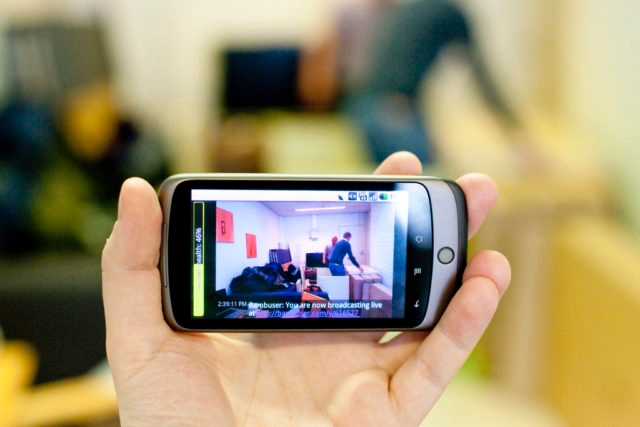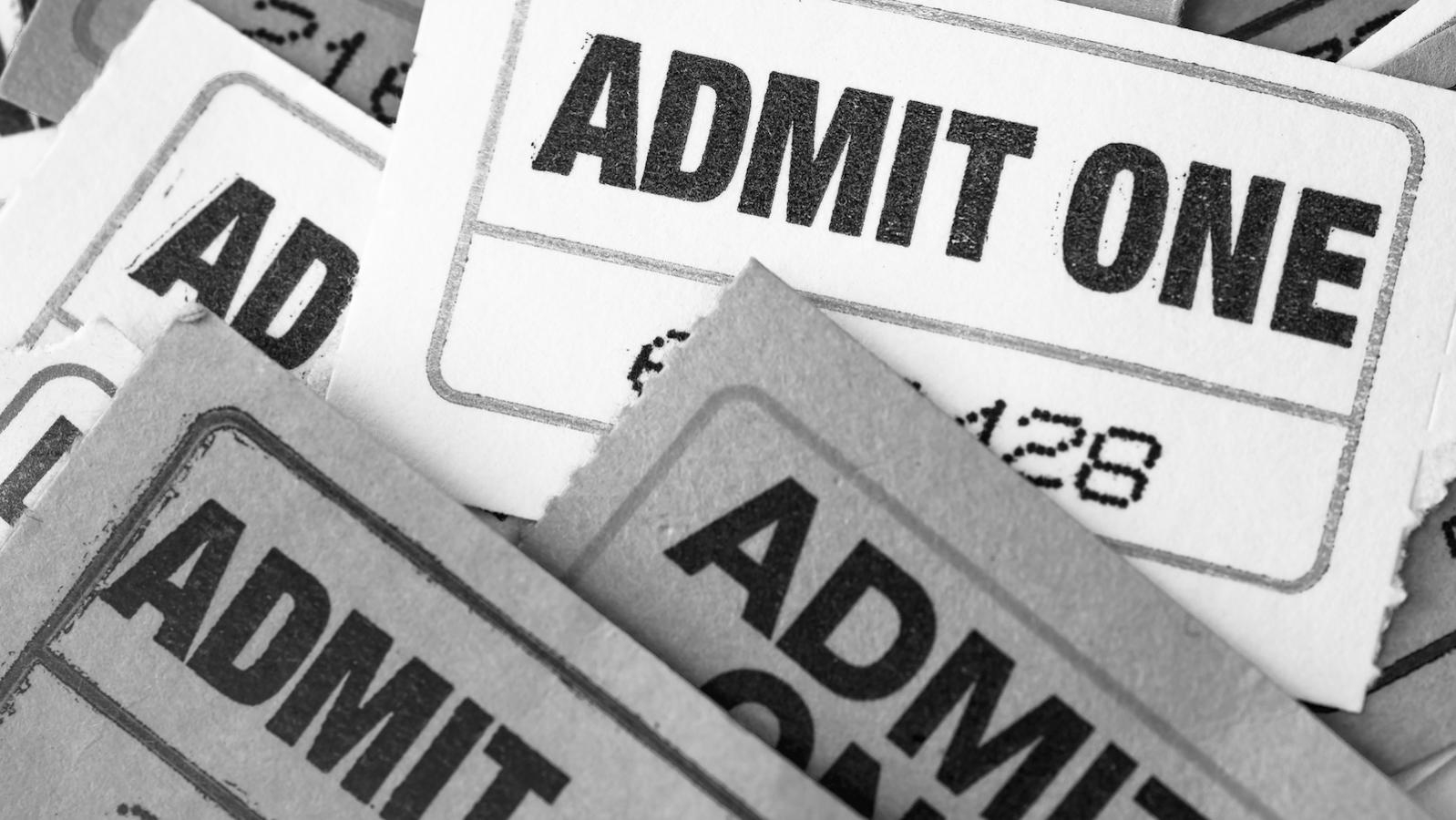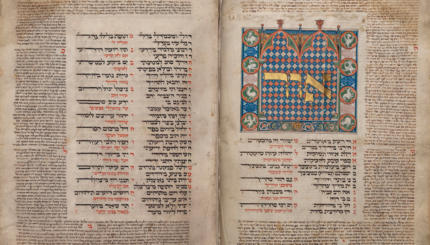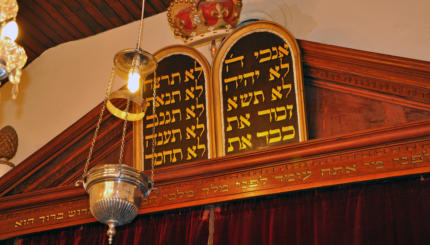Question: My wife and I decided not to buy High Holiday tickets this year because they’re so expensive. What can we do to mark the holidays at home, on our own?
–Norman, Chicago
Answer: Every year as the High Holidays approach I hear people grumbling about the price of tickets. And it’s true, at some synagogues it’s upwards of $500 a head. But why is it so expensive? It’s only a few hours, right?
Consider Becoming a Synagogue Member
First of all, in most synagogues, High Holiday tickets are included in membership fees. So, if you join the synagogue as a member, there’s no need to pay for tickets. It’s only if you want to go without paying membership fees that your tickets are so costly. Think about it like a membership to a gym, or health club. If you only go three times a year, then yes, what you pay is a lot per visit. But if you regularly visit your gym, then the monthly fee probably breaks down to only a dollar or two per visit. And the gym needs your membership fees to pay for machines, classes, maintenance, etc.
It’s the same with a synagogue. If you only go three days a year, it does work out to be a high fee per visit. But if you want that synagogue to be around for you to visit on your three days, then the synagogue needs to collect money to make it viable. That money goes to help pay for the building, staff, rabbi, cantor, children’s programming, classes, even food for Kiddush. Synagogues are businesses, in addition to being places of worship. They need to stay afloat financially if they want to be able to provide basics like holiday and Shabbat services to their members.
With your help, My Jewish Learning can provide endless opportunities for learning, connection and discovery.
I consulted with the executive director (who requested to remain anonymous) of a large synagogue in the Washington DC area about this issue, and he explained that it’s worthwhile to invest in synagogue membership. While you may think of yourself as a “limited user” of the synagogue, there is really no such thing as a one-, two- or three-day-a-year Jew he argued: “Even though someone may not attend services ‘religiously’ they still attend synagogues for b’nai mitzvah, weddings, funerals, and other occasions and often call upon rabbis at times of need.”

Don’t Be Afraid to Ask for a Reduced Fee
Most synagogues have a policy of not turning people away for lack of money and will lower the ticket price if you approach the rabbi or executive director in advance (not the day before the holiday!) and explain your financial situation. The same goes for membership fees. In addition, some synagogues offer a special service for non-members, with free or more affordable tickets.
Discounted, Free and Live-Streamed (Online) Services

So, that was just a little background on why tickets can be so pricey. If you’re definitely not interested in buying tickets, there are a number of other ways to get to services:
- If there’s a university near you, you may be able to attend services at Hillel for free on the high holidays. A few Hillels do charge for those who are not students, but most don’t. It’s best to call before you go.
- Your local JCC may also be holding services, and if you’re a member, you may get a heavy discount on tickets there.
- Your local Jewish federation may also have information about free holiday services in your area.
- For a more traditional service, Chabad houses are known for welcoming anyone and everyone free of charge.
- In New York City, a group called Ohel Ayalah runs free “walk-in” High Holiday services in several neighborhoods. In addition, the Conservative movement’s Jewish Theological Seminary offers free High Holiday services in Manhattan, although advance registration is required. Know of another institution offering free or walk-in services? Leave a comment below!
- For a less traditional service, try the online streaming High Holiday service. Read our article on where to stream High Holiday services. Know of another good way to stream High Holiday services that we should include? Leave a comment below!
Celebrating On Your Own
However, if you want to do something that doesn’t involve any kind of service or rabbi, I can make some other suggestions. First of all, you can certainly purchase a mahzor and pray from home, if you’d like. How about taking the day off work to spend a full day volunteering for a worthy cause? Alternately, you can go on a long reflective hike, and bring along a mahzor or some other spiritually relevant book to read.
Try buying a shofar and blowing it yourself. Gather your family and friends for a festive meal, and eat the symbolic foods of Rosh Hashanah, apples and honey. There’s a Sephardic custom to do a short seder-like ritual before the Rosh Hashanah meal, so you could try that even if you’re not Sephardic. Think about what has been most meaningful to you about past Rosh Hashanah celebrations, and try to duplicate and expand on that with your family.
Ultimately Rosh Hashanah is about reflecting on your past year, and improving yourself for the year to come. Any way you can do that, whether or not you end up in a synagogue, is in the spirit of the holiday. Chag sameach (Happy holiday)!
Rosh Hashanah
Pronounced: roshe hah-SHAH-nah, also roshe ha-shah-NAH, Origin: Hebrew, the Jewish new year.
Shabbat
Pronounced: shuh-BAHT or shah-BAHT, Origin: Hebrew, the Sabbath, from sundown Friday to sundown Saturday.
Yom Kippur
Pronounced: yohm KIPP-er, also yohm kee-PORE, Origin: Hebrew, The Day of Atonement, the holiest day on the Jewish calendar and, with Rosh Hashanah, one of the High Holidays.
Mahzor
Pronounced: MAKH-zore, Origin: Hebrew, literally “cycle” the mahzor is the special prayer book for the High Holidays, containing all the liturgy for Rosh Hashanah and Yom Kippur.



